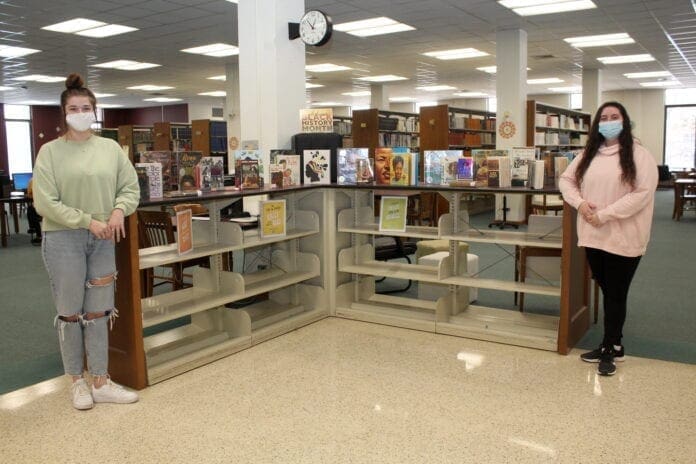Once again, West Liberty University will take part in the African American Read-In, honoring Black History Month. The virtual release of a video compilation is planned for Feb. 25 and all students and employees are invited to take part in the activity.
“The African American Read-In gives us a chance to share great literature and read aloud from any text written by an African American author. Each reader will read a poem, excerpt from a book or speech, or some other literature and share virtually due to the pandemic,” explained Chris McPherson, who is a member of the WLU Campus & Community Diversity Committee.
“All students, faculty, staff and community members were invited to submit a video of themselves reading aloud. These videos will be compiled and released or simply listen to the final result which will be shared via email and on Topper Station (topperstation.com),” said McPherson who serves as the director of WLU’s Center for Student Success and Learning Center.
This is the second year that WLU has taken part in the national event.
According to the National African American Read-In website, the Read-In is the nation’s first and oldest event dedicated to diversity in literature. Begun in 1990 by the Black Caucus of the National Council of Teachers of English (NCTE), its goal is to make literacy a significant part of Black History Month.
Every February, NCTE commemorates books written by black authors that elevate black experiences. According to NCTE, hundreds of thousands of people—in bookstores and coffee shops, in faith-based institutions and prisons, in living rooms and in kitchens and anywhere else people gather—dedicate time in February to explore both old and new literature.
The WLU Diversity Committee meets throughout the academic year and is chaired by McPherson and Dr. Felipe Rojas, assistant professor of Spanish.
Other members include employees: Kate Billings, Ryan Glanville, Amanda Tennant, Sara Sweeney, Diana Harto, Eveldora Wheeler, Chris Lee, Hilary Bougher-Muckian, Vishakha Maskey, Kimberly Underwood, Matthew Wood, Michael Aulick, and Rebecca Meacham. The group also has one student member, Andrew Dillie.
Examples of reading options include:
Resources for Engaging in Race Conscious Conversations
- “Ella Baker and the Black Freedom Movement, A Radical Democratic Vision,” by Barbara Ransby
- “The Intersectionality Wars,” Jane Coaston
- The Combahee River Collective Statement
- “13 Books to Educate Yourself on Antiracism, According to Black Women,” by Erin Parker
- Ta-Nehisi Coates “Between the World and Me”
- “How to Be an Antiracist,” Ibram X. Kendi
- “The Black Friend,” by Frederick Joseph
- “Eloquent Rage: A Black Feminist Discovers Her Superpower,” by Brittney Cooper
Children and Young Adult Literature by Black Authors
- “Clap When You Land,” by Elizabeth Acevedo
- Suggestions from NCTE
Poetry
- “Counting Descent” by Clint Smith
- “Dreams” by Langston Hughes
- “Still I Rise” by Maya Angelou
- “Strange Fruit” by Abel Meeropo
- African American Fiction Classics
For assistance or for more information, please contact McPherson at christopher.mcpherson@westliberty.edu or by phone at 304.336.8274.


